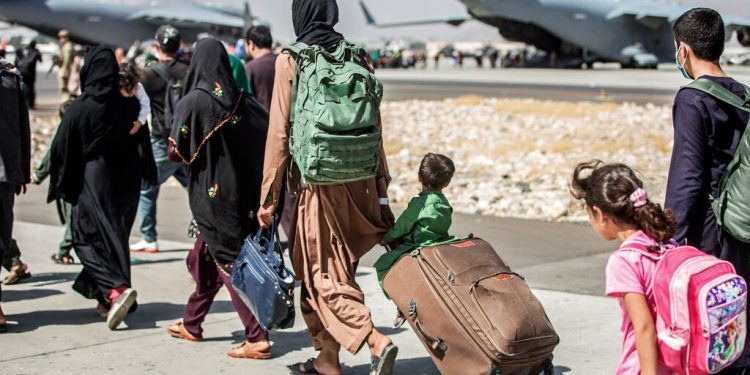The Trump administration plans to terminate two major Afghan refugee and ally relocation programs, drawing sharp criticism from veterans, advocacy groups, and lawmakers.
According to a May 29 letter from the U.S. State Department to Congress, the Coordinator for Afghan Relocation Efforts (CARE) office will shut down by July 1, with its duties reassigned to the Afghanistan Affairs Office. The CARE office was established to manage the relocation of Afghan nationals who qualified for Special Immigrant Visas (SIVs), Immigrant Visas, and resettlement through USRAP (U.S. Refugee Admissions Program).
Related posts
In tandem, the White House’s proposed FY 2026 budget, released May 30, recommends eliminating Operation Enduring Welcome, a CARE-facilitated initiative designed to relocate Afghan allies endangered due to their support for the U.S. military. The budget proposes zero funding for the program beyond September 30, 2025, when the current fiscal year ends.
Advocates Call It a Betrayal
AfghanEvac, a nonprofit committed to helping Afghan allies, condemned the decision, calling it a “profound betrayal of American values and promises.” The group highlighted that the CARE Office’s elimination contradicts the CARE Authorization Act of 2024, which legally mandates the existence of a coordinator for Afghan relocation through December 2027.
“The CARE Office was established to fix the failures of the U.S. withdrawal,” AfghanEvac stated. “Eliminating it — without public explanation, transition planning or reaffirmation of mission — is unconscionable.”
Shawn VanDiver, AfghanEvac’s CEO, said the closure of both programs could impact nearly 300,000 Afghan individuals, including 212,000 still in Afghanistan and 3,000 relatives of active-duty U.S. service members.
“The United States is saying, ‘Do what you want with these people. We don’t care,’” VanDiver told Military Times.
End of Deportation Protections
The administration had already signaled a shift in Afghan policy. In early May, DHS Secretary Kristi Noem announced the end of Temporary Protected Status (TPS) for Afghans, effective July 14, asserting that conditions in Afghanistan had “sufficiently improved.”
TPS had shielded over 11,000 Afghans in the U.S. from deportation, many of whom say returning to Taliban-controlled areas poses serious risks to their safety.
Context and Backlash
The decision to shut down CARE and Enduring Welcome follows years of criticism over how the U.S. handled its 2021 military withdrawal from Afghanistan, leaving behind many allies vulnerable to Taliban reprisals. Despite legislative support for ongoing relocation efforts, the administration’s moves have left veterans’ groups and humanitarian organizations alarmed.
The Biden-era CARE office and Enduring Welcome program were widely seen as stopgaps to address the botched evacuation and to honor commitments to Afghans who risked their lives assisting U.S. troops.
With these programs now set for dissolution, advocates fear many Afghans will be left stranded — and targeted — in a country still plagued by instability.








